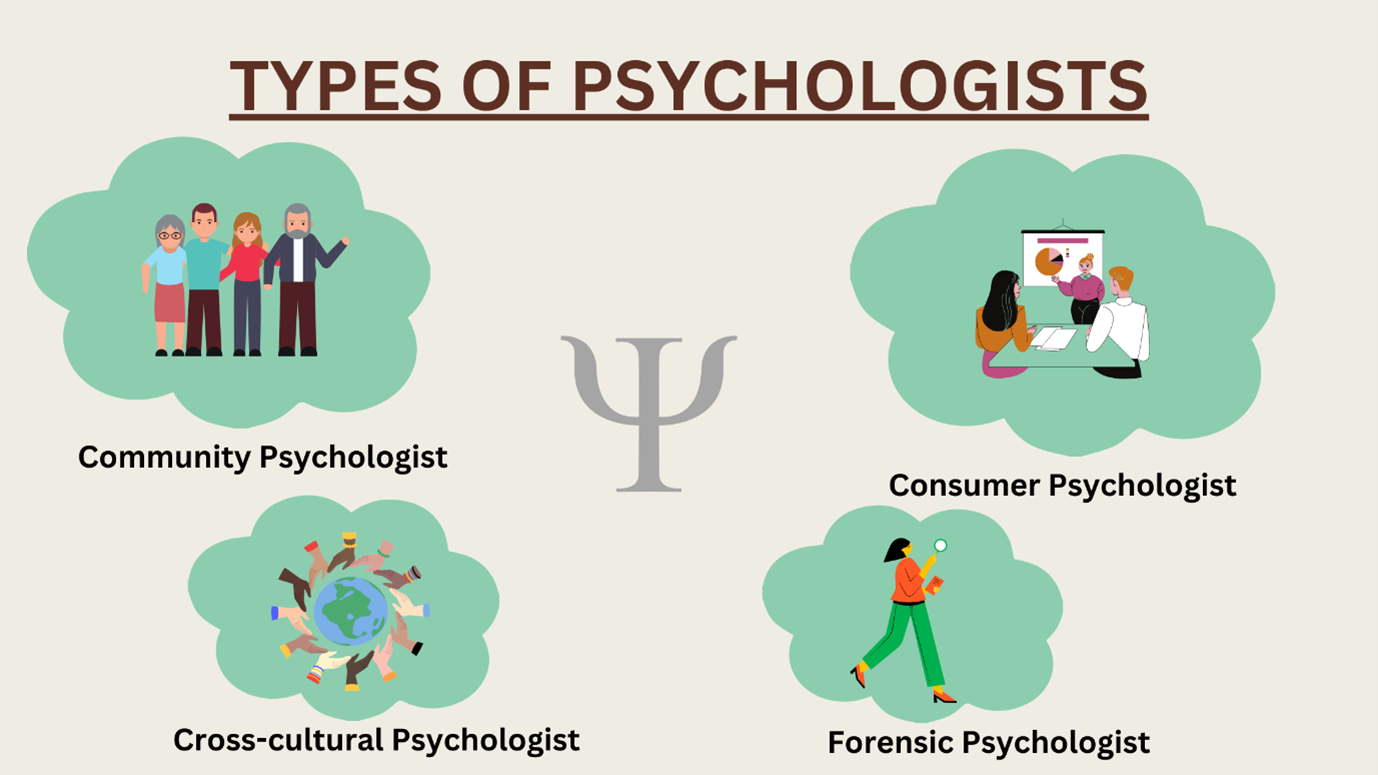What to Expect When Visiting the Best Psychologist in Delhi for Therapy
What to Expect When Visiting the Best Psychologist in Delhi for Therapy
Blog Article
Psych Therapy: A Comprehensive Guide to End Results and techniques

Cognitive-Behavioral Treatment
Cognitive-Behavioral Treatment (CBT) is a commonly utilized psychotherapeutic technique that concentrates on determining and modifying useless reasoning and habits patterns. Created in the 1960s by Aaron T. Beck, CBT integrates cognitive and behavioral concepts to deal with numerous mental health issues, including anxiety, anxiousness, and stress-related conditions.
CBT is identified by its structured, goal-oriented nature. Therapy commonly includes a collaborative procedure between the therapist and customer, where particular troubles are identified, and functional strategies are created to address them. Methods such as cognitive restructuring, direct exposure treatment, and skill-building exercises are generally utilized. Cognitive restructuring includes challenging and modifying negative idea patterns, while direct exposure treatment aims to minimize fear and stress and anxiety with steady exposure to been afraid objects or circumstances.
Evidence-based study supports the efficiency of CBT for a wide variety of emotional problems - Best Psychologist in Delhi. Its focus on skill acquisition and self-help methods empowers clients to continue progress separately after treatment ends. The flexibility and effectiveness of CBT have made it a keystone in modern psychotherapeutic method
Psychodynamic Methods
Rooted in the very early concepts of Sigmund Freud, psychodynamic strategies concentrate on exploring the subconscious mind and its influence on habits and emotions. These methods aim to reveal covert ideas and sensations that may be driving maladaptive actions and emotional distress. Central to this technique is the concept of inner dispute, usually coming from unsolved past experiences, especially those from youth.
Therapists using psychodynamic methods utilize several essential techniques, including totally free association, where individuals are encouraged to talk easily to reveal unconscious product, and dream analysis, which analyzes the unrealized material of desires. In addition, the exploration of transference and countertransference dynamics within the therapeutic connection is important. These interactions can offer insights into the individual's internal world and relational patterns.
Psychodynamic treatment is generally longer-term compared to various other techniques, providing a extensive and deep understanding of the individual's subconscious. Study indicates that it can be particularly reliable for intricate psychological health issues, such as character problems and chronic depression. By fostering self-awareness and psychological understanding, psychodynamic treatment looks for to bring unconscious material to awareness, allowing people to achieve meaningful and long-term modification in their lives.
Humanistic Strategies
Structure on the structures laid by psychodynamic approaches, humanistic strategies use an unique perspective concentrated on specific prospective and self-actualization. Originating in the mid-20th century, these techniques focus on the intrinsic goodness and development potential of people, emphasizing an all natural view of human experience. Secret numbers such as Carl Rogers and Abraham Maslow have actually dramatically influenced this healing method, which includes techniques like client-centered therapy and Gestalt therapy.
Client-centered treatment, established by Rogers, plays an essential function in humanistic techniques. It depends on the specialist providing an environment of genuine favorable regard, empathy, and congruence. This promotes a risk-free space for customers to discover their sensations and experiences without judgment, promoting self-discovery and personal growth. The specialist's duty is more of a facilitator than an authority, motivating clients to harness their inner sources for recovery.
Gestalt therapy, an additional vital humanistic technique, stresses present moment awareness and the integration of mind and body. By concentrating on the "right here and now," clients get greater understanding into their present feelings and behaviors. Methods such as role-playing and guided visualization are often utilized to help customers gain a much deeper understanding of themselves, eventually bring about improved self-awareness and fulfillment.
Integrative Treatments
Integrative treatments represent a synthesis of different therapeutic methods tailored to meet the unique needs of each client. This approach recognizes the intricacy of human psychology and the complex nature of psychological health and wellness issues. By incorporating aspects from various institutions of psychiatric therapy-- such as cognitive-behavioral therapy (CBT), psychodynamic therapy, and humanistic techniques-- integrative therapies use a more alternative and versatile therapy paradigm.
Specialists of integrative treatment assess each customer's certain needs, signs and symptoms, and personal history to design a personalized treatment plan. This customized technique enhances the possibility for healing success by dealing with the source of mental distress and advertising overall well-being. Methods may consist of mindfulness exercises, cognitive restructuring, and emotional processing, each picked to target various facets of the customer's concerns.
Furthermore, integrative therapies emphasize the restorative partnership, seeing the client-therapist bond as a crucial part of efficient therapy. This relationship promotes an encouraging environment where customers really feel safe to check out and resolve their problems. The adaptability of integrative treatments makes them suitable for a broad series of problems, including anxiety, depression, trauma, and interpersonal problems, thus enhancing their applicability and performance in diverse professional setups.

Measuring Therapy End Results
Assessing the effectiveness of psychotherapy is important for both clinicians and clients to make sure that the treatment is producing the desired results. To accomplish this, different approaches and devices are utilized to determine treatment outcomes methodically. Standardized analysis tools, such as the Beck Anxiety Supply (BDI) and the Generalized Anxiety Problem 7 (GAD-7), provide measurable information on signs and symptom extent and modifications with time.
In addition to standard devices, qualitative methods like client self-reports and medical interviews supply important insights into the individual experiences and viewed progress of customers. Consistently set up examinations, typically at the beginning, omphalos, and end of treatment, aid in tracking the trajectory of enhancement or identifying areas requiring modification.
End result measurement is not restricted to symptom reduction; read review it additionally incorporates practical enhancements in every day life, such as far better social connections, raised job productivity, and enhanced total health. Modern improvements in digital health and wellness have actually introduced mobile apps and on the internet systems that promote real-time tracking and feedback, even more refining the analysis procedure.
Inevitably, an extensive approach to measuring treatment end results makes sure that therapeutic treatments are effective, effective, and customized to meet the specific requirements of clients, thereby optimizing the general therapeutic experience.
Verdict
Psychotherapy supplies a multifaceted selection of techniques targeted at resolving certain psychological wellness issues and enhancing overall well-being. Cognitive-Behavioral Treatment and psychodynamic strategies target subconscious influences and useless ideas, specifically. Humanistic methods click now concentrate on individual growth and self-actualization, while integrative therapies integrate several approaches for customized treatment strategies. Reviewing treatment outcomes via standard analyses and qualitative methods ensures a comprehensive understanding of performance, ultimately directing clients towards withstanding mental wellness improvements.
From the structured approach of Cognitive-Behavioral Treatment (CBT) to the deep expedition of the subconscious in psychodynamic therapy, each approach brings one-of-a-kind advantages. Its emphasis on ability purchase and self-help techniques encourages customers to proceed More Bonuses development independently after therapy concludes (Best Psychologist in Delhi). Trick figures such as Carl Rogers and Abraham Maslow have actually considerably affected this healing method, which includes methods like client-centered treatment and Gestalt treatment

Report this page